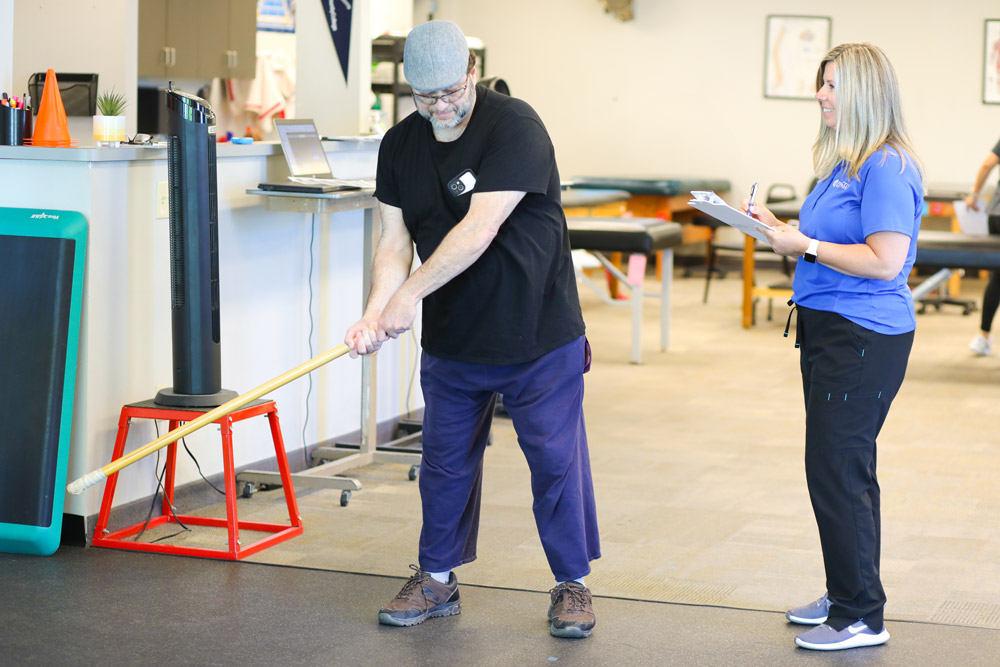“My doctor told me I have tendinitis in my shoulder and that I should see you. How long do you think it will take to eliminate the pain and get back to work?” This is a common conversation we have as physical therapists with our patients. In turn the physical therapist will ask, you as a patient, the following questions:
- How long have you experienced shoulder pain?
- What aggravates it or makes it better?
- What have you done so far to manage your shoulder pain?
The reason for these questions is to determine whether your tendon injury is acute or chronic in nature. An acute tendon injury that results in inflammation, pain and swelling is consistent with the diagnosis of Tendonitis. A chronic degenerative tendon that has structural changes is consistent with Tendinosis.
Below are terms that you may have read or heard surrounding a tendon injury.
- Tendinopathy means disease or disorder of a tendon. It includes “all” abnormal tendon conditions such as Tendonitis and Tendinosis.
- Tendonitis means inflammation of a tendon
- Tendinosis means an abnormal or diseased state of a tendon
Tendinosis and tendonitis occur most commonly in the Achilles (heel), patella (knee cap), supraspinatus (shoulder), and elbow (tennis or golfers’ elbow).
Tendonitis is usually the result of a single traumatic event with the cardinal symptoms of pain, redness and inflammation. Tendonitis generally resolves in 2 to 6 weeks with non-steroidal anti-inflammatories (such as Motrin and Aleve), ice, rest and physical therapy modalities.
Tendinosis on the other hand is a chronic degenerative condition of a tendon and is generally due to overuse, repetitive stress and non-inflammatory process. Tendinosis can either stand alone by itself or evolve from chronic tendonitis. The cellular changes seen in tendinosis is secondary to degeneration (structural weakening) of the tendon over a long period time. A tendon that is repeatedly or chronically stressed and not given enough time to heal can develop into tendinosis. Unlike tendonitis, tendinosis can take several weeks to months to heal. Generally, anti-inflammatories including steroid injections do not help and are not recommended.
As mentioned above, tendonitis and tendinosis result in trauma to the tendon. Initially, both will be accompanied by pain, inflammation, redness, pain with movement, loss of functional strength and swelling. Left untreated the acute tendon injury could lead to a chronic degenerative, weak and painful tendon. If your tendonitis does not improve in 2 to 6 weeks, it is important to follow-up with your primary care provider and/or physical therapist. If you’d like to schedule a free injury assessment, our team of physical therapists can meet one-on-one with you to help determine your concerns and help create a plan to living pain free.




